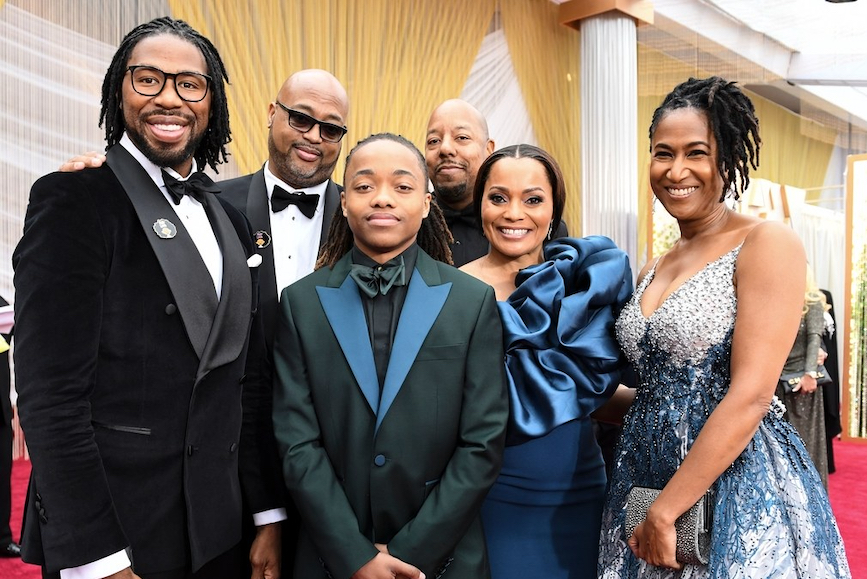While we would have obviously preferred to meet in person in Chicago, it was still great to convene the PRWeek community in a virtual environment this week to put purpose in business under the microscope.
Over three days of PRDecoded: Purpose – Time for Action and the Purpose Awards on Wednesday, delegates dove deep into the many aspects of purposeful communication and business and celebrated the case studies, teams and individuals leading the way.
While the values of authenticity, sincerity and contributing to the public good are solid guiding principles, there’s still no real established playbook for acting with purpose. That’s why the Purpose Awards winners, honorable mentions and shortlisted work are so important in providing a North Star for others to learn from and aspire to emulate.
The Most Purposeful Activation in the 2020 awards is an excellent example of this.
Unilever’s Dove Hair and Hair Love’s Oscars campaign, aided by PR agency Edelman, was all about shattering stereotypes and promoting authenticity.
This activation’s roots stem back to 2017, when Dove became aware of a Kickstarter campaign for an animated short film called Hair Love by emerging filmmaker Matthew Cherry.
The premise of the film centered on a Black father who must do his daughter’s hair for the first time. Dove donated $25,000 to help fund his project, given its alignment with the brand’s mission, which includes the CROWN Act (Creating a Respectful and Open World for Natural Hair) — a law that prohibits discrimination based on hair texture and hairstyle.
In return for the funding, the brand logo featured in the film’s credits and the film was nominated in the Academy Awards for Best Animated Short. Dove quickly elevated the film further and created a For Your Consideration campaign.
Buzz around the film and the people impacted by hair discrimination drove visibility of policy changes such as the CROWN Act. The movie won the Academy Award and Cherry mentioned the act during his acceptance speech.
It was great purposeful work that is truly meaningful and highlighted a serious issue via engaging content. It also elevated awareness of an important piece of legislation.
The winners spanned a range of important issues such as the global COVID-19 pandemic, the environment, gender and racial equity, domestic violence, health and supporting veterans.
A particular favorite of mine was the Best Student Campaign, won by students at Colonial Forge High School in Stafford County, Virginia for a grassroots effort to change Stafford’s roads after one of their schoolmates was killed in a road traffic accident.
Helen Wang crashed while turning onto a county road because her vision was blocked by overgrown vegetation, so her classmates conducted a classic political outreach campaign aimed at allowing local governments to remove overgrown vegetation instead of waiting for the Virginia Department of Transportation to do with it.
The group built relationships with politicians and officials across party lines and at every appropriate level of government, campaigning successfully for the 2019 Stafford County Transportation Bond Referendum to ensure the county could fund secondary road improvement projects when allowed.
They deployed other PR and social media tactics and, in July, Helen’s Law became effective as an ordinance. There are surely some budding PR pros of the future in that group of students and it was a fitting, though tragic, tribute to their friend.
At the PRDecoded conference, the interview with BlackRock CMO Frank Cooper underlined how significant it is that the world’s largest asset manager, with $7.8tn under management, is placing purpose on an equal footing with profit.
Cooper emphasized that “people expect corporations to do more than maximize profits for shareholders.” They want to see business contributing to public good.
This extends to finding the best talent for your enterprise. “They want a job that pays well and has status, but also one that contributes to something bigger,” said Cooper.
He added: “Purpose becomes critical … we're seeing the risk factors facing companies who act without purpose increase … and we translate that into the risk to the assets the companies hold.”
That doesn’t mean the push towards purpose comes without pushback. Cooper explained how, when BlackRock CEO Larry Fink released his seminal annual letter on the subject in 2018, many CEOs noted the “additional burden” that was putting on them that they shouldn’t have.
BlackRock’s response was that it “wasn’t inventing this idea that people want purpose-driven companies or that populism is the outcome of people not participating in prosperity.” Issues such as climate change are a real threat and pose a real risk to the assets of companies.
“If you look at it through that lens, we're justified in raising this as a requirement,” said Cooper.
It’s an example of a company turning the words into action and backing up their statements with real initiatives, which is the conundrum many brands and business are contending with.
As someone who has reviewed “hundreds” of company purpose statements that all “swim in the same area and don’t differentiate the company,” Cooper reiterated that “actions are greater than words.”
Brands should “demonstrate before you even perfect your purpose statement” and “have a bias for action.”
Amen to that and you can find out much more about how purposeful brands are doing this and how their agency partners are contributing to the process in the content wraps on PRWeek.com and within the virtual event environment, where the presentations, Purpose Awards winning case studies and many other tools and resources can be accessed here for a further 12 months.
